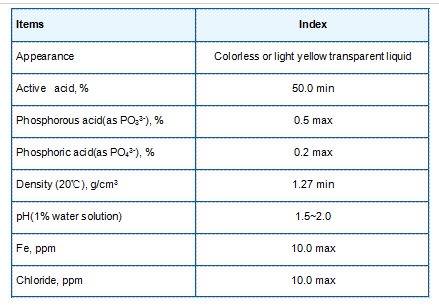cationic polyacrylamide uses
The Versatile Applications of Cationic Polyacrylamide
Cationic polyacrylamide (CPAM) is a synthetic polymer widely utilized in various industries due to its unique properties and versatility. As a water-soluble substance, CPAM carries a positive charge, which enables it to interact effectively with negatively charged particles in a solution. This characteristic makes it an essential component in numerous applications, particularly in water treatment, paper production, agriculture, and cosmetics.
Water Treatment
One of the primary applications of cationic polyacrylamide is in water treatment processes. It serves as a flocculant, helping to aggregate suspended particles and facilitate their removal from water. During this process, CPAM binds with negatively charged particles, causing them to clump together, resulting in larger aggregates that can be easily removed through sedimentation or filtration. This function is crucial in both municipal and industrial wastewater treatment facilities, where it helps ensure compliance with environmental regulations by efficiently reducing turbidity and contaminants. Additionally, CPAM is used in chemical dosing and stabilization processes, improving the overall efficiency of water treatment operations.
Paper Industry
Cationic polyacrylamide is also extensively used in the paper manufacturing industry. It acts as a retention aid, enhancing the retention of cellulose fibers and fillers in the papermaking process. By improving the retention rates, CPAM helps to reduce the amount of raw materials needed, leading to cost savings and increased efficiency. Moreover, by promoting better drainage during papermaking, cationic polyacrylamide improves the final paper product's quality, resulting in higher strength and smoother finishes. Its application extends to the coating of paper, where it helps enhance the surface properties, contributing to better printability and brightness.
cationic polyacrylamide uses

Agriculture and Soil Management
In agriculture, cationic polyacrylamide has found its niche as a soil conditioner and erosion control agent. When applied to soil, CPAM can improve its structure, enhancing water retention and aeration. This is especially beneficial in arid regions where maintaining soil moisture is crucial for crop yield. Moreover, by reducing soil erosion during rainfall or irrigation, CPAM helps protect the land from degradation, thereby promoting sustainable agricultural practices. As a soil additive, it encourages the growth of beneficial microorganisms, improving overall soil health.
Cosmetic Applications
The cosmetic industry has also embraced cationic polyacrylamide for its beneficial properties. It serves as a thickening agent and stabilizer in personal care products, such as lotions, creams, and hair care formulations. CPAM enhances the texture and glide of these products, improving user experience. Additionally, due to its conditioning properties, cationic polyacrylamide is often used in hair care formulations, providing improved manageability and shine. Its ability to bind with negatively charged hair surfaces offers a unique advantage in delivering hydration and nourishment.
Conclusion
Cationic polyacrylamide is a highly versatile polymer that plays an instrumental role in various sectors. From its critical use in water treatment, where it helps remove contaminants and enhance water quality, to its applications in the paper industry, agriculture, and cosmetics, CPAM demonstrates its adaptability and effectiveness. As industries continue to evolve and environmental regulations tighten, the demand for efficient and sustainable solutions like cationic polyacrylamide is likely to increase. Researchers and manufacturers are continuously exploring new formulations and applications, ensuring that this remarkable polymer will remain a vital component in addressing contemporary challenges across multiple fields. Whether it is enhancing the quality of our water, improving agricultural practices, or enriching cosmetic products, cationic polyacrylamide is undeniably a significant agent in modern product development and environmental sustainability.
-
Water Treatment with Flocculant Water TreatmentNewsJun.12,2025
-
Polymaleic AnhydrideNewsJun.12,2025
-
Polyaspartic AcidNewsJun.12,2025
-
Enhance Industrial Processes with IsothiazolinonesNewsJun.12,2025
-
Enhance Industrial Processes with PBTCA SolutionsNewsJun.12,2025
-
Dodecyldimethylbenzylammonium Chloride SolutionsNewsJun.12,2025





